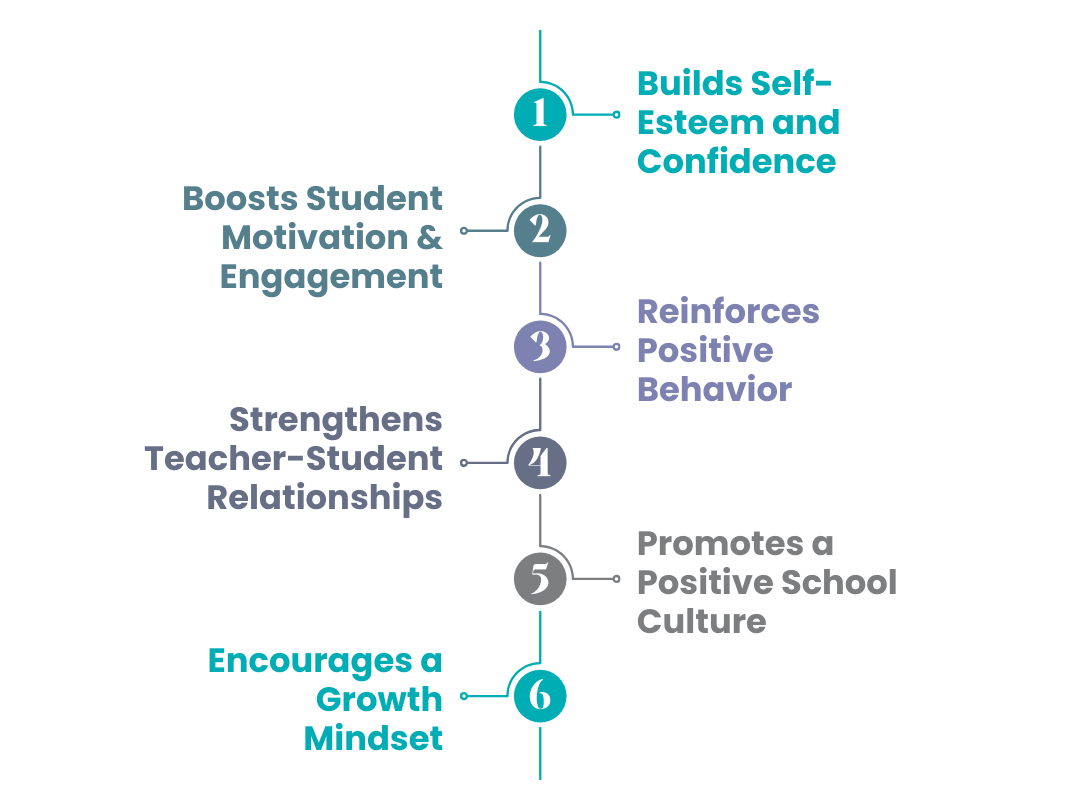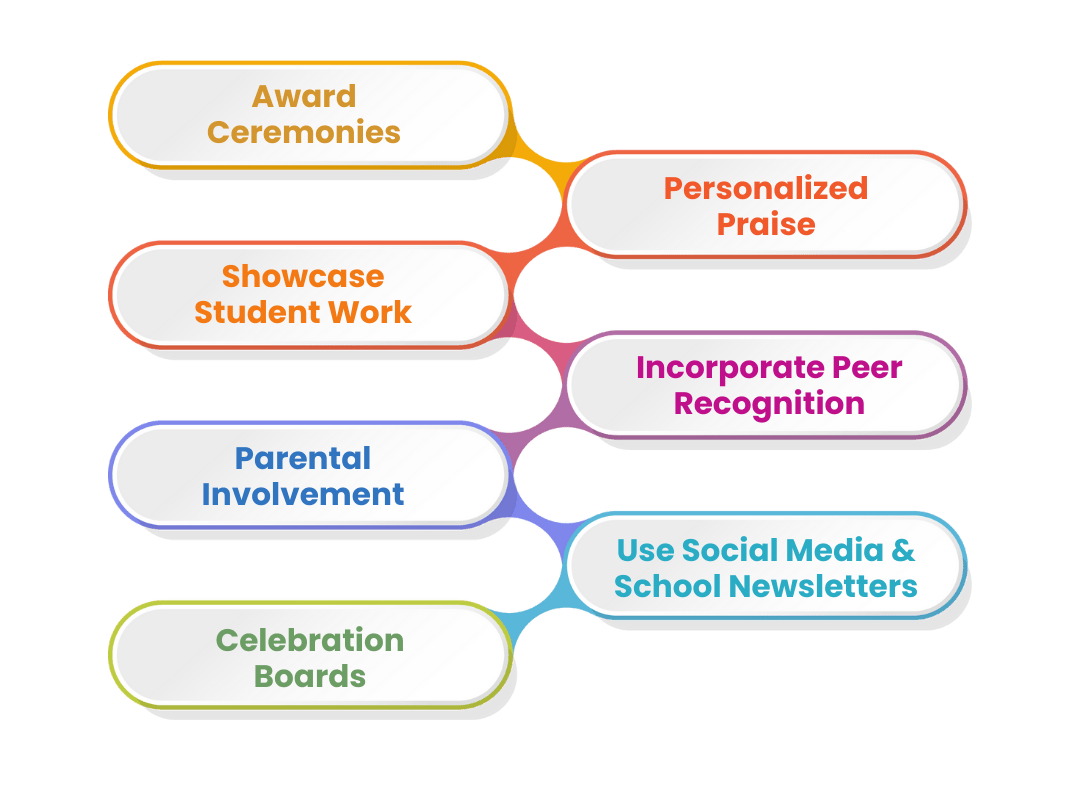Do you remember that moment when you were the first one in the whole class to crack a tough math question, and your teacher proudly said, “Shabbash! (Very Good)!”? Didn’t that little bit of praise just light up your entire day? It was a very small gesture by your teacher. But it was priceless for you. Isn’t it?
Education is more than just exams, grades, and assignments. It is a journey that shapes student’s futures, helping them grow intellectually, emotionally, and socially.
Amid the rigor of academics, celebrating student success often gets overlooked. However, it plays an important role in boosting morale, encouraging positive behavior, and fostering an environment of growth.
Let’s explore, why recognizing and celebrating achievements in schools and colleges is crucial, and how it can impact student’s overall development.
Why is Celebrating Student Success So Important?
At its core, education aims to nurture students into becoming well-rounded individuals. Part of that nurturing process involves acknowledging their efforts and accomplishments.
When student achievements are celebrated, it validates their hard work and reinforces their motivation to continue striving for more. This recognition is not limited to academic excellence; it extends to improvement, participation, teamwork, and personal growth.
Here’s why celebrating achievements in education should be a priority:

1) Boosts Student Motivation and Engagement
When students see that their efforts are appreciated, they are more likely to stay motivated.
Acknowledging their academic achievements or progress in other areas can ignite a sense of pride, pushing them to set higher goals.
Think about it—how often have you felt motivated to put in your best effort after receiving praise for your work? It’s the same for students.
Celebrating progress in education encourages students to engage more actively in their learning process, which leads to better educational outcomes.
2) Reinforces Positive Behavior
Acknowledging success is not just about handing out awards; it’s also about promoting positive behaviors that lead to success.
When schools celebrate student achievements, they set a precedent for what is valued and rewarded in the learning environment.
For example, celebrating a student who consistently helps peers fosters a culture of kindness and teamwork. Similarly, recognizing students who demonstrate resilience in overcoming academic challenges reinforces the importance of perseverance.
3) Builds Self-Esteem and Confidence
Celebrating success in education helps build student’s self-esteem and confidence.
When students are recognized for their achievements, they feel valued and capable. This sense of accomplishment encourages them to tackle more challenging tasks without the fear of failure.
Students with higher self-esteem are more likely to participate in class, take on leadership roles, and persevere through difficult assignments, which collectively contribute to their holistic development.
4) Strengthens Teacher-Student Relationships
When teachers take the time to recognize student achievements, it fosters a stronger bond between them. It shows students that their teachers care about their progress, not just their grades.
This connection encourages a more open and collaborative learning environment where students feel comfortable asking for help and discussing their struggles.
Recognizing student accomplishments can also be a powerful tool for teachers to identify what motivates each student, enabling them to personalize their teaching methods accordingly.
5) Encourages a Growth Mindset
Celebrating achievements is closely tied to promoting a growth mindset in students.
A growth mindset is the belief that abilities and intelligence can be developed through hard work, dedication, and learning. When schools celebrate student success, it reinforces the idea that effort leads to progress and improvement.
This motivates students to embrace challenges and view setbacks as opportunities for growth rather than signs of failure.
6) Promotes a Positive School Culture
A school culture that regularly celebrates student achievements cultivates a positive learning environment. It creates a sense of belonging and unity among students, staff, and parents.
Celebrating success, big or small, can significantly boost morale, making students feel that their school is a supportive and encouraging place.
This atmosphere can increase student retention, attendance, and overall satisfaction with the educational experience.
How Can Schools Celebrate Student Success?
Now that we understand the importance of celebrating student success, let’s explore some practical ways to incorporate it into the educational environment.
Here are some effective strategies that schools can use to recognize and celebrate student achievements:

1) Award Ceremonies
Hosting award ceremonies at the end of a term or academic year is a classic way to celebrate academic achievements and other accomplishments.
These ceremonies can be inclusive by recognizing various categories such as academic excellence, sportsmanship, leadership, improvement, and creativity.
2) Personalized Praise
Rather than generic compliments, teachers can make recognition more meaningful by personalizing praise.
For example, instead of saying “Great job!”, teachers can say, “I’m impressed by how you approached that math problem. Your persistence paid off.” Students experience a sense of recognition and appreciation for their unique contributions when they receive personalized praise.
3) Showcase Student Work
Displaying student’s artwork, science projects, or essays in classrooms or common areas is another effective way to recognize their efforts.
This form of celebrating student achievements not only validates their hard work but also inspires others to strive for similar accomplishments.
4) Incorporate Peer Recognition
Peer recognition can be a powerful motivator.
Allowing students to nominate their classmates for awards or recognition creates a sense of community and encourages students to support each other’s successes.
It helps students learn the value of celebrating other’s accomplishments, not just their own.
5) Parental Involvement
Involving parents in the celebration of their child’s success adds an extra layer of motivation.
Schools can send personalized letters or emails to parents, highlighting the student’s achievements.
Hosting events where parents can participate in recognizing their children’s accomplishments also strengthens the school-community relationship.
6) Use Social Media and School Newsletters
Schools can use social media platforms and newsletters to highlight student achievements. This not only gives recognition to students but also showcases the school’s commitment to celebrating success.
It’s an excellent way for the school to share its achievements with the broader community.
7) Celebration Boards
Creating a dedicated space, such as a bulletin board, where student’s accomplishments are displayed can be an everyday reminder of success.
Whether it’s for academic excellence, acts of kindness, or athletic achievements, having a celebration board fosters a sense of pride and motivates other students to have their accomplishments showcased.
Wrap Up
Celebrating student success is not merely an optional add-on in education but a fundamental aspect of nurturing young minds.
It motivates students, reinforces positive behaviors, builds confidence, and fosters a culture where everyone feels valued. Schools that prioritize recognizing student achievements are not just preparing students for exams; they are preparing them for life.
Remember, it’s not always about the top grades or the biggest awards. Even small accomplishments deserve recognition because every step forward counts.
By celebrating progress in education, we help students understand that success is a journey, not just a destination.
As educators, parents, or community members, let’s embrace the practice of celebrating every victory, big or small, and watch students flourish.
In the end, when we celebrate student achievements, we are investing in their potential, showing them that their efforts matter, and creating a supportive environment that encourages lifelong learning and growth.




